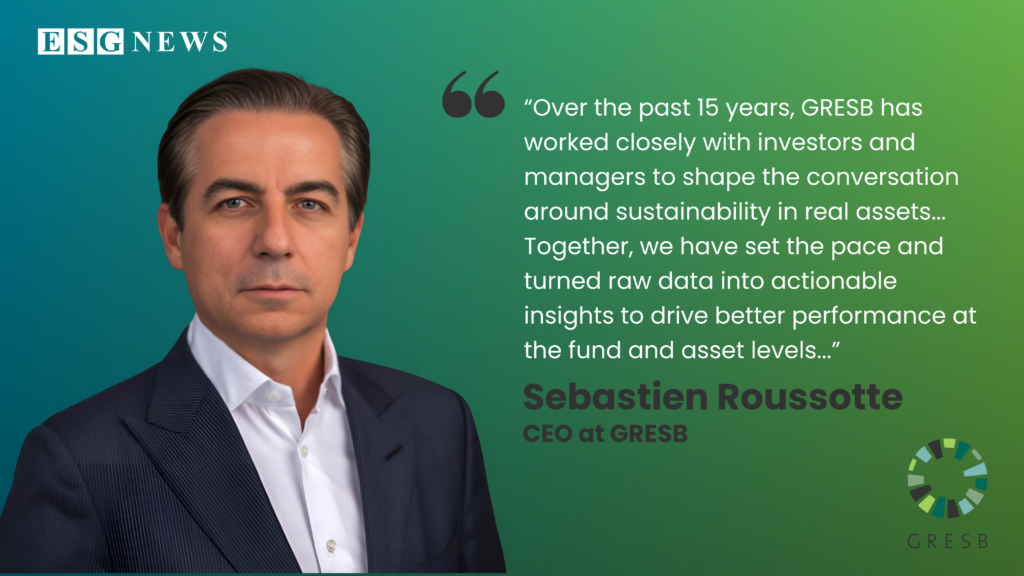65% of Real Estate Participants Set Net Zero Targets: GRESB’s 2024 ESG Benchmark

GRESB, the global sustainability benchmark and largest source of ESG data for real assets, has announced the release of its 2024 Real Estate and Infrastructure Benchmark results, marking 15 years of collaboration with the industry to drive sustainability performance.
This year, the GRESB Benchmarks have grown to include a record 2,223 real estate participants and 887 infrastructure participants (fund and asset), representing almost USD 9 trillion in gross asset value (GAV). These results demonstrate the industry’s deep commitment to and continued progress in sustainable market transformation, driven by evolving investor expectations, regulatory imperatives, and the urgent need to address climate-related risks.
“Over the past 15 years, GRESB has worked closely with investors and managers to shape the conversation around sustainability in real assets,” said Sebastien Roussotte, CEO at GRESB. “Together, we have set the pace and turned raw data into actionable insights to drive better performance at the fund and asset levels – in terms of environmental sustainability and financial returns.”
Key Insights from the 2024 Benchmarks
Real Estate
- USD 7 trillion in GAV, covering 15 sectors in 80 markets with average scores of 75.84 (Standing Investments) and 85.76 (Development).
- Net zero targets are on the rise, with a 15% increase in participants setting net zero goals, now reaching 65%; of these, 29% have incorporated embodied carbon into their net zero plans.
- Climate risk adoption remains high, with 94% of participants incorporating resilience into their climate strategy.
- Significant growth in Asia, with a 15% increase in regional participation.
Related Article: GRESB Launches Transition Analytics to Aid Asset Managers in Managing Transition Risks and Achieving Net Zero Targets
Infrastructure
- USD 1.59 trillion in GAV for the Infrastructure Asset Assessments and USD 468 billion for the Infrastructure Fund Assessment, spanning 36 sectors, 3,145 facilities, and over 700 individual assets in 81 global markets.
- The new Infrastructure Development Asset Assessment covers 70 facilities across 24 markets.
- 90% of Infrastructure Asset Assessment participants reported 100% data coverage for both Scope 1 and Scope 2 emissions, emphasizing transparency in emissions reporting.
- 65% of infrastructure participants now have a net zero target (up from 60%).
- Significant participation growth in Austria and Italy (123% and 45% respectively), with new additions to the benchmark from Albania, Anguilla, Antigua, and Barbuda.
The 2024 Benchmark results reflect the ongoing efforts of GRESB, the GRESB Foundation, and the wider industry to refine the Standards and methodology used to assess sustainability performance. These refinements ensure a sharper focus on material ESG issues and enable clearer performance differentiation, providing investors with the insights needed to make informed financial decisions.
“As we continue working with the industry to improve the GRESB Standards and our methodology, we know that we have a lot of work ahead to engage our members at every stage, helping ensure an improved process for all involved,” added Roussotte. “We look forward to this work and are committed to supporting the real assets industry transition to a more sustainable, resilient, and low-carbon future.”
For a detailed overview of the 2024 GRESB Benchmark Results, including interactive dashboards, visit: GRESB 2024 Real Estate Assessment Results.








